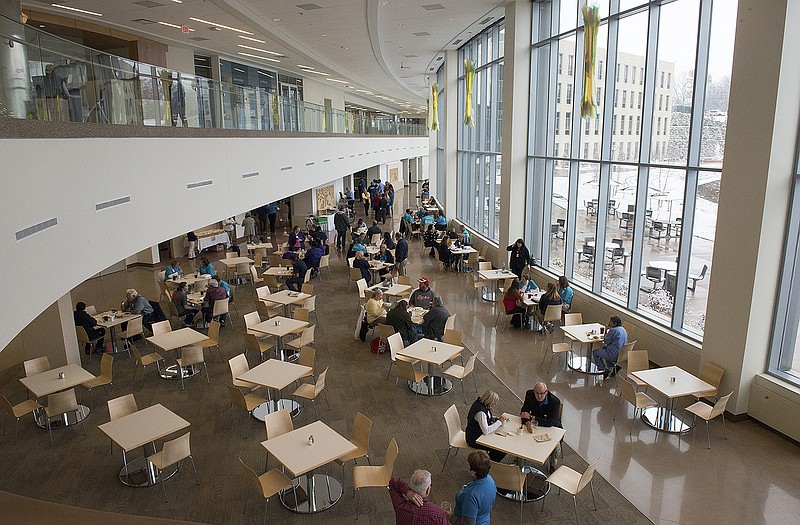Hospitals have set new records for the number of COVID-19 patients they've admitted during the latest coronavirus surge.
SSM Health St. Mary's Hospital, for example, reached a new peak of 47 COVID-19 admissions, said Lenora Adams, regional vice president for medical affairs.
"Some people think that omicron is a mild variant and that it doesn't cause significant disease. That is not true," Adams told listeners Thursday afternoon during an online Cole County coronavirus update. "This is a very serious disease and needs to be taken seriously."
She added the disease affects young people and is responsible for them ending up in the hospital's Intensive Care Unit. Several young patients have died.
"It's certainly putting a strain on the hospitals in the community and other health care facilities -- with the volumes of people who are requiring care way up, above even the previous surge," Adams said.
Hospitals are again making adjustments, such as postponing some procedures and elective surgeries.
"Capital Region (Medical Center) and all of our health care facilities, right now, their resources are being stretched to their limits," said Randy Haight, CRMC vice president of medical affairs. "The current Omicron surge has affected -- not only the patients we're caring for, but also our staff's availability. Our staff becomes ill and is not able to be here."
The number of patients and deaths at CRMC is about as high as it's ever been, he said. And data show much of the worst of the pandemic may be avoided, if people receive vaccinations.
"Almost 75 percent of patients who are being admitted have not been vaccinated," Haight said. "Over 95 percent of our patients who have died from COVID have not been vaccinated."
And he pleaded listeners receive vaccinations. He added the simple acts health professionals have asked the public to do -- wearing a mask, washing hands and staying home when you're sick -- help prevent spread of the disease.
"Many of the basic infections disease -- infectious control processes -- that have been going on for decades, if not centuries, still hold true today," Haight said. "We encourage people to get vaccinated. We encourage you, if you're sick, to stay home. We encourage you to keep washing your hands, mask if you're physically out and about, and physically distance when you can."
Ron Rockwood, Jefferson City Medical Group director of medical services, said the group's Express Care locations are receiving high numbers of patients. That's pushing some wait times into several hours, he said.
"We've acknowledged that, and we're trying to treat as many patients as we safely can," Rockwood said. "We do ask that patients have patience with us as we're attempting to manage those significant numbers -- that we haven't seen since last spring."
People who are eligible for vaccination boosters should receive them as soon as possible.
A common question the Cole County Health Department receives concerning COVID-19, is when to seek medical care, department Director Kristi Campbell said.
She said someone might think they have COVID-19, undergo an at-home test or visit a testing site.
Anyone who tests positive for COVID-19 should contact their primary care physician for guidance, Haight said.
"We will go over the risk factors to see if they would qualify for any of the treatments that may be available," he said. "Unfortunately, as we have talked about in our community health care group that includes many of the counties in this area, we don't have a lot of those therapies. So, it is supportive care. Some of us will have patients monitor their oxygen saturation. We also do follow-up phone calls to see how people are doing."
Patients who are at high risk of severe illness may qualify for monoclonal antibody infusions, Adams said.
"Those drugs are in limited availability, but we have requested a large amount from the state. Hopefully, we'll get allocated more of the drug next week," she said. "If that occurs, we can provide that monoclonal antibody infusion at either hospital. There's also a new one out that can be injected into the muscle."
Drive-thru testing is available every two weeks in Jefferson City. The next event is 10 a.m.-6 p.m. Sunday at American Legion Roscoe Enloe Post 5, 1423 Tanner Bridge Road. Future events are scheduled for Feb. 13, Feb. 27, March 13 and March 27.

